第20章 THE AGE OF THE DICTATORS(1)
Independence without liberty and statehood without respect for law are phrases which sum up the situation in Spanish America after the failure of Bolivar's "great design." The outcome was a collection of crude republics, racked by internal dissension and torn by mutual jealousy--patrias bobas, or "foolish fatherlands,"as one of their own writers has termed them.
Now that the bond of unity once supplied by Spain had been broken, the entire region which had been its continental domain in America dissolved awhile into its elements. The Spanish language, the traditions and customs of the dominant class, and a "republican" form of government, were practically the sole ties which remained. Laws, to be sure, had been enacted, providing for the immediate or gradual abolition of negro slavery and for an improvement in the status of the Indian and half-caste; but the bulk of the inhabitants, as in colonial times, remained outside of the body politic and social. Though the so-called "constitutions" might confer upon the colored inhabitants all the privileges and immunities of citizens if they could read and write, and even a chance to hold office if they could show possession of a sufficient income or of a professional title of some sort, their usual inability to do either made their privileges illusory. Their only share in public concerns lay in performing military service at the behest of their superiors.
Even where the language of the constitutions did not exclude the colored inhabitants directly or indirectly, practical authority was exercised by dictators who played the autocrat, or by "liberators" who aimed at the enjoyment of that function themselves.
Not all the dictators, however, were selfish tyrants, nor all the liberators mere pretenders. Disturbed conditions bred by twenty years of warfare, antique methods of industry, a backward commerce, inadequate means of communication, and a population ignorant, superstitious, and scant, made a strong ruler more or less indispensable. Whatever his official designation, the dictator was the logical successor of the Spanish viceroy or captain general, but without the sense of responsibility or the legal restraint of either. These circumstances account for that curious political phase in the development of the Spanish American nations--the presidential despotism.
On the other hand, the men who denounced oppression, unscrupulousness, and venality, and who in rhetorical pronunciamentos urged the "people" to overthrow the dictators, were often actuated by motives of patriotism, even though they based their declarations on assumptions and assertions, rather than on principles and facts. Not infrequently a liberator of this sort became "provisional president" until he himself, or some person of his choice, could be elected "constitutional president"--two other institutions more or less peculiar to Spanish America.
In an atmosphere of political theorizing mingled with ambition for personal advancement, both leaders and followers were professed devotees of constitutions. No people, it was thought, could maintain a real republic and be a true democracy if they did not possess a written constitution. The longer this was, the more precise its definition of powers and liberties, the more authentic the republic and the more genuine the democracy was thought to be. In some countries the notion was carried still farther by an insistence upon frequent changes in the fundamental law or in the actual form of government, not so much to meet imperative needs as to satisfy a zest for experimentation or to suit the whims of mercurial temperaments. The congresses, constituent assemblies, and the like, which drew these instruments, were supposed to be faithful reproductions of similar bodies abroad and to represent the popular will. In fact, however, they were substantially colonial cabildos, enlarged into the semblance of a legislature, intent upon local or personal concerns, and lacking any national consciousness. In any case the members were apt to be creatures of a republican despot or else delegates of politicians or petty factions.
Assuming that the leaders had a fairly clear conception of what they wanted, even if the mass of their adherents did not, it is possible to aline the factions or parties somewhat as follows: on the one hand, the unitary, the military, the clerical, the conservative, and the moderate; on the other,the federalist, the civilian, the lay, the liberal, and the radical. Interspersed among them were the advocates of a presidential or congressional system like that of the United States, the upholders of a parliamentary regime like that of European nations, and the supporters of methods of government of a more experimental kind.
Broadly speaking, the line of cleavage was made by opinions, concerning the form of government and by convictions regarding the relations of Church and State. These opinions were mainly a product of revolutionary experience; these convictions, on the other hand, were a bequest from colonial times.